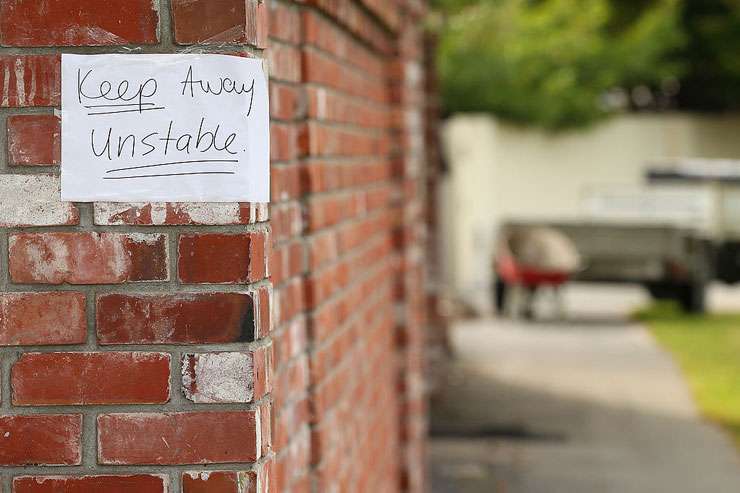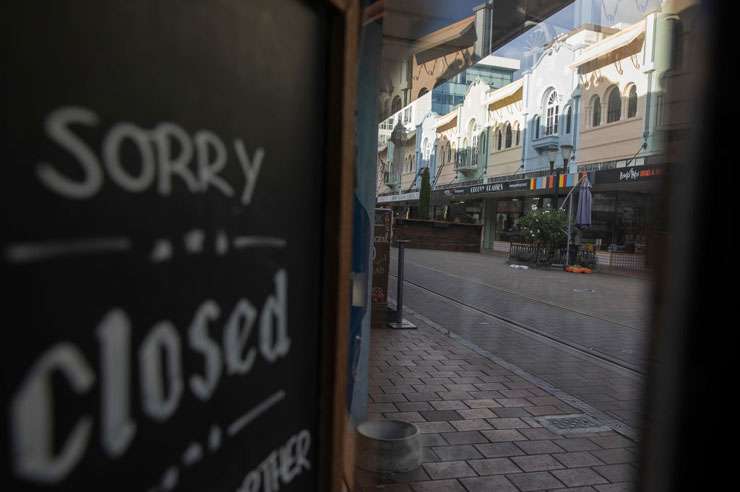If anyone knows how to survive a real estate crisis, it’s agents in Christchurch. Now, these battle-ready folk are helping other agents around the country learn post-earthquake lessons.
Jane Meyer was a manager for Harcourts Grenadier in the city office in Madras Street when the earthquake struck Christchurch in 2011. Everything fell down around her.
“It was gone. I mean, I’ve often said to other business owners, ‘If I said to you in 30 seconds you’re going to walk out of your office and you’ll never come back in or retrieve anything from it, what is your plan?’ Because that was what happened to us.”
The aftermath of an earthquake is different, of course, to a nationwide, and almost global, lockdown because of a virus but there are useful lessons to be passed on.
Start your property search
Now Ray White’s regional manager for the South Island, Meyer has been carrying out online training for agents nationwide on how to cope, and that includes looking after their own mental wellness and also understanding they will encounter highly emotional clients.
When the earthquake struck, everything was still in the building, including the server.
Today, life is made easier by advances in technology.
“Now that we’re all on Google and the Cloud, there’s so much more safety - we can walk away from a building, click into our computer and access everything.”
Unlike back then, buildings haven’t fallen down but some of the advice is the same.
Life-saving list
Meyer talks about the importance of having a “wish I had list”.
There is frustration among agents because they can’t get out and see clients face to face, which is one of the fundamentals of real estate, she says.
That’s where the list comes in, where agents focus on picking a date when they will walk back into their office and say “oh, I wish I had tidied up my database, I wish I had called all my database, I wish I’d looked at all my processes, my listing presentation, updated my folders. All those things that we go ‘oh, God, I wish I had time to do.’
“My message to them is you’ve actually got the time now, and this is a once in a lifetime – hopefully – outcome. Now is the time to get your business in the best shape it can possibly be to go live on the first of (when the lockdown lifts).”

In the aftermath of the earthquake, thousands of homes were destroyed or deemed unsafe or unstable. Photo / Getty Images
Meyer is noticing agents, like many others in lockdown, are finding it hard to get motivated so routines are crucial.
Get up and work, and make adjustments around family: “Challenge yourself with family or with your partner to have a romantic night, or you have a proper movie afternoon with the curtains drawn and the popcorn out.”
When the earthquake hit and staff were not allowed back into the office, contracts were sitting on desks and people didn’t have computers, phones or the keys to their cars. Because of this, Christchurch staff knew what they needed to do when the lockdown was announced.
“There was no ‘I can’t do it’ or ‘that’s impossible’. They were constantly looking at ‘okay, how can I get this contract across the line, how can I get this settlement in 48 hours, what’s the best way to do it’.
“Everyone was very active and proactive in being ready. It’s about making very quick, decisive decisions.”
Hard decisions
Back then the businesses which survived the best were the ones which closed quickly and made sometimes harsh decisions, like laying off staff, but those businesses came through faster and stronger than others and also rehired staff.
“Those that didn’t take steps quickly and decisively, who went ‘we hope it’s going to be okay’ and tried to keep everybody on and tried to keep every single office open suffered greatly very quickly and didn’t recover.
“I was one who was made redundant four weeks after the earthquake. That’s the reality but then I ended up working for one of the other Harcourts groups that led to a wonderful five years with them.”
The market was different post-earthquake, and will be different again post-lockdown, she says, but will recover.
After the earthquake an average market of around 600 sales a month fell to a new normal of 300 a month, but that quickly started to come back.

The coronavirus has brought life in the city to a standstill. Photo / Getty Images
People will still have to make decisions about life going forward with the loss of a job or a downturn in income, and some may decide they have to sell their holiday home or trade down in order to be secure.
“And people will need to move as they always do, through death, through divorce, through babies, or having to move because they need to go somewhere else now to get a job, so there’s always going to be a base market and as long as we get that base market then things will move upwards.”
For now, she warns there will be some battle fatigue to come. Adrenalin can turn into weariness down the track, and dealing with hurting clients can be tough.
After the earthquake, there weren’t happy sales: “There was always so much pain behind it. “The weariness in the team became quite evident and it was hard to keep going, because we do care and we go in and we listen.”
Be human
She advises agents to remember they are there to provide solutions for clients but to also remember they are not miracle workers in the hard times ahead.
Justin Haley from Bayleys has a similar message. Bayleys, too, has been conducting training via Zoom where Christchurch messages are being passed on to hundreds of participants.
Conversations were held early in leadership sessions of the lockdown but the fundamentals were the same: “Be nimble, adapt, be ready for change. But be in a communicative mode, so be a human first. Talk to your clients from a human perspective first and the rest will ensue.”
Already agents are having long phone conversations with clients who just want to talk, and in times of distress strong brands are often sought out for their expertise.
“People are going to be in need and need help and that’s where we need to be respectful and understand their situation and be humble along with it.”
One of Haley’s messages is in order to help others you must look after yourself, so have a routine and get regular exercise – he turned to yoga after the earthquake and now passes on advice on how to breathe correctly to assist with anxiety and thought processes.
As for the market, Haley says “expect the unexpected”.
Net migration is likely to “jump through the roof” with returning expats, and scenarios hard to imagine might occur – like the boom that took place after the earthquake of people buying broken buildings which had no insurance.




































































